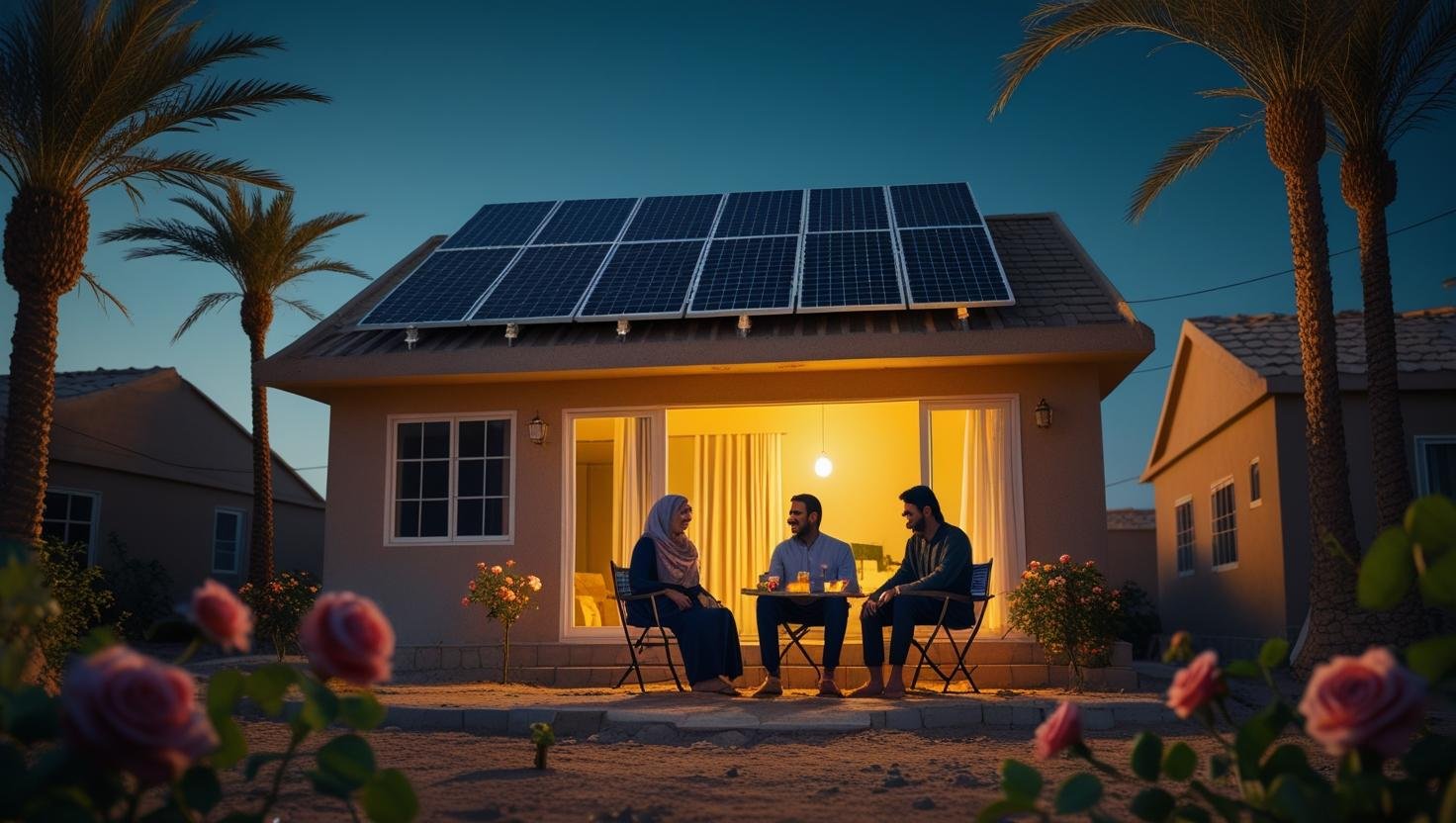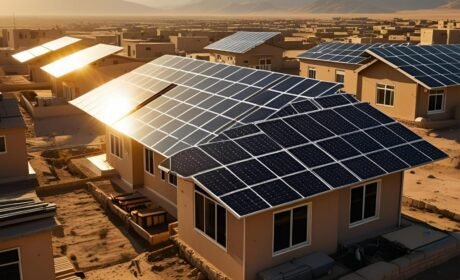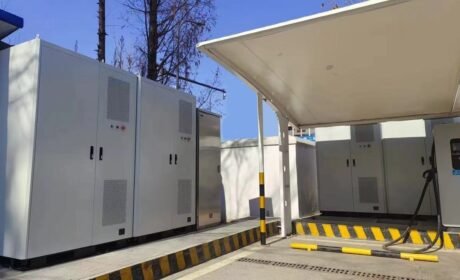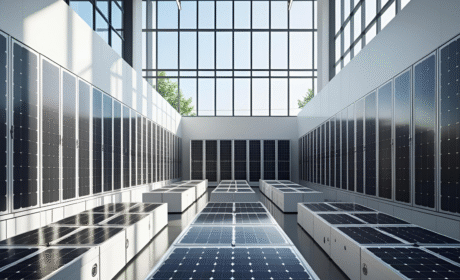Basra and most Iraqi provinces face a severe electricity crisis due to weak national electricity production and heavy reliance on fossil fuels and backup generators. This shortage leads to frequent power outages and increased operational costs. On the bright side, Basra enjoys over 300 sunny days per year and a high solar irradiance, making it a strong candidate for solar energy solutions. Moreover, Iraq receives up to 16 hours of sunlight per day on average. Yet, solar power contributes to less than 1% of the country’s current energy mix clearly pointing to a huge opportunity for growth and investment in this sector. So, How Solar Installation in Basra Can Cut Your Energy Bills by 50% ? Let’s explore the numbers, savings, and how to get started.
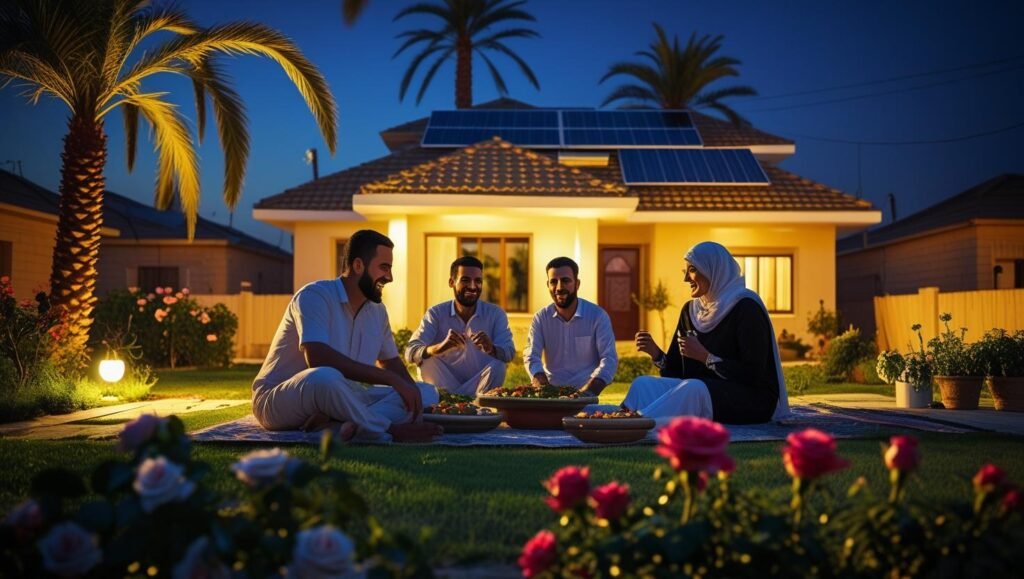
How Solar Installation in Basra Can Cut Your Energy Bills by 50%
How Do Solar Panels Work?
Solar panels rely on photovoltaic (PV) cells made from semiconductive materials like silicon. These cells absorb sunlight and convert photons directly into direct current (DC) electricity. This DC electricity is then collected through wiring inside the solar panel and passed through an inverter, which transforms it into alternating current (AC). The type of electricity used in homes and appliances. In short, solar panels convert sunlight into electricity with no moving parts, making them highly efficient and low-maintenance. This simple yet powerful technology is now used worldwide to power homes, farms, and businesses. Especially in areas with high solar exposure like Basra.
Cost Comparison: Solar Energy vs. Traditional Electricity
At present, most Iraqi households pay symbolic fees for government-supplied electricity.
However, the service is often unreliable and frequently interrupted, especially during the summer months. As a result, many families turn to diesel or gas generators to cover the shortfall. But these alternatives come with high operational costs.
Fuel and gas prices fluctuate and often lead to actual expenses that far exceed public grid prices. On the other hand, solar power relies on a free fuel source the sun meaning that after the initial installation cost, ongoing expenses are minimal.
Plus, homeowners can now benefit from supportive government programs. Iraq has launched affordable financing plans for installing solar systems, with repayment periods stretching up to 7 years.
In short, switching to solar energy can significantly reduce your electricity bills, especially with the rising cost of fossil fuels and the reliance on expensive generators.
In many cases, solar panels can cover a large portion of household consumption, reducing the need to rely on the public grid or private generators. This can lead to savings of 50% or more on your electricity expenses over time.
Environmental and Economic Benefits
Beyond the direct financial savings, solar energy brings significant environmental and economic advantages. From an environmental standpoint, expanding the use of solar panels helps reduce greenhouse gas emissions and other pollutants. This leads to cleaner air quality. As the Iraqi Minister of Electricity stated about the Shams Al-Basra project, it “represents a major step toward reducing emissions and improving air quality.”
In this way, solar technology plays a role in combating climate change and protecting public health.
On the economic side, solar power helps create new job opportunities in installation and maintenance, while also reducing the country’s dependence on imported fuel. In conclusion, while the most immediate benefit may be lower electricity bills.
The positive effects of solar energy reach far beyond the home supporting cleaner communities and a more sustainable local economy.
Conclusion
With abundant sunlight and increasing pressure on the electricity grid in Basra. Installing solar energy systems has become an attractive option for every home and farm.
By harnessing the freely available and abundant sunshine in the region. Residents can cut their monthly electricity bills in half or more, while also reducing their reliance on expensive generators.
In addition, solar energy contributes to reducing environmental pollution and strengthening energy independence. Given that Basra enjoys up to 16 hours of sunlight per day. Along with the affordable financing options offered by the government, seriously considering the installation of a solar power system is a smart and forward-thinking move for homeowners and farmers alike.
You can get in touch with the AQWA POWER team today to start a new energy journey!
